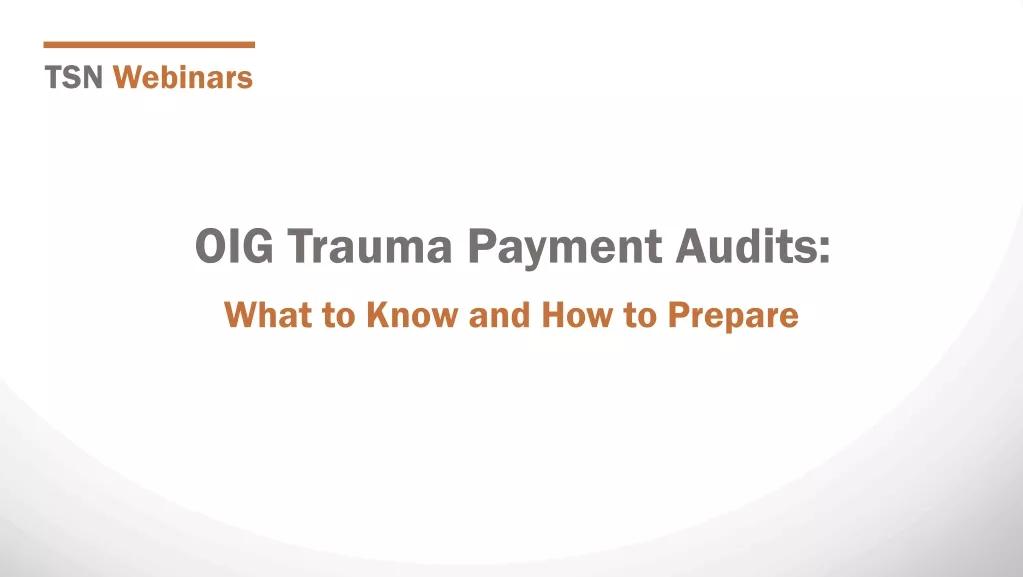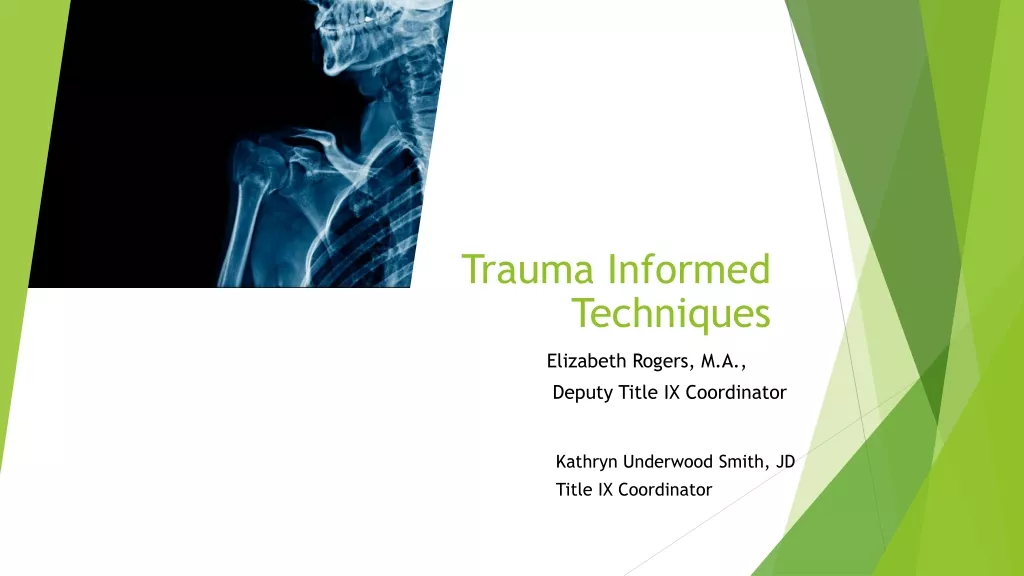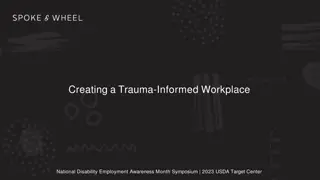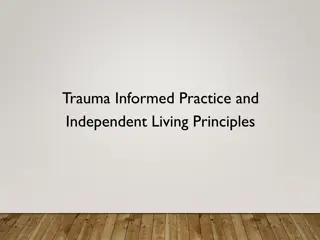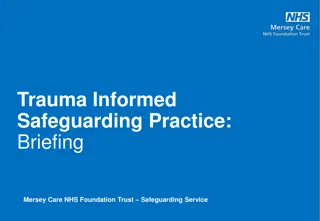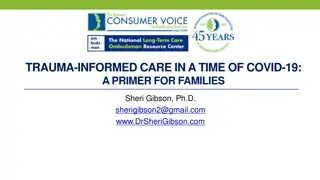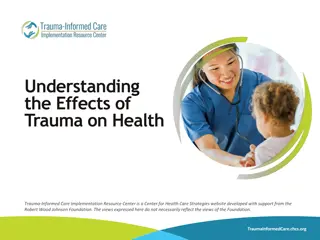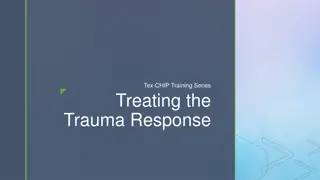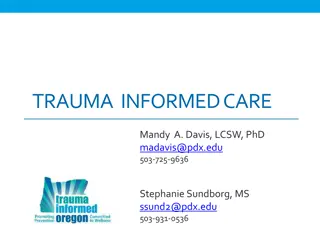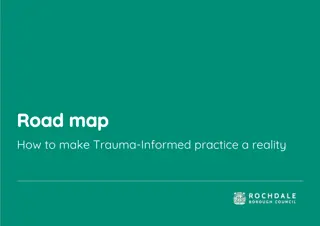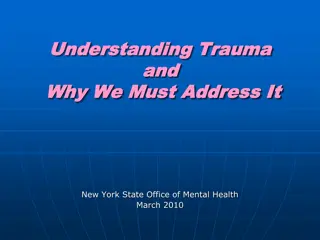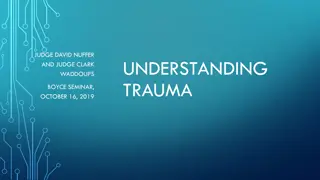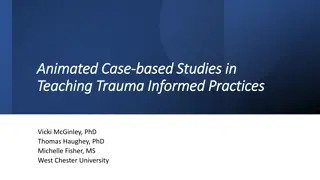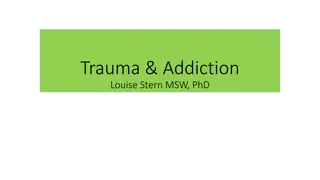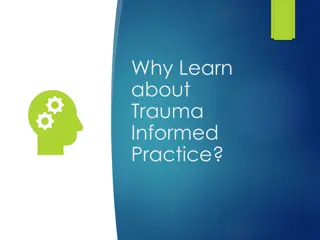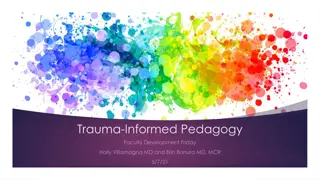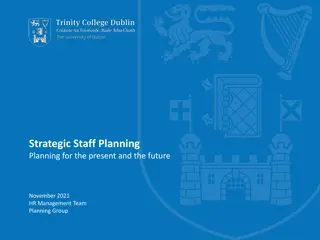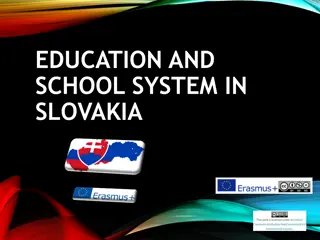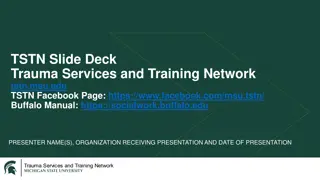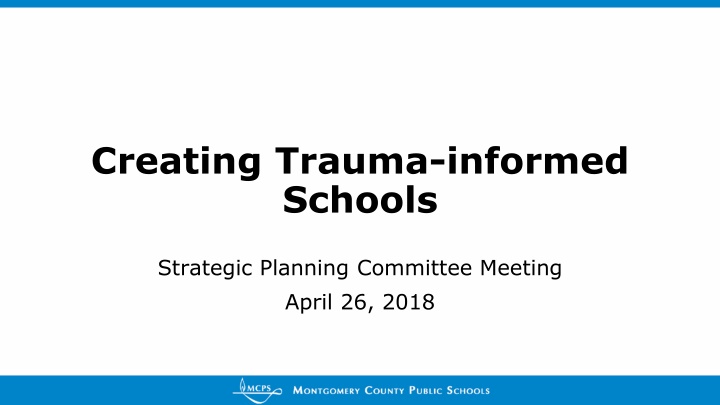
Creating Trauma-Informed Schools: Strategies and Initiatives
Explore the key initiatives and strategies discussed in a school committee meeting focusing on trauma-informed practices, including training programs and paradigms shifts. Understand the impact of childhood trauma, ways schools can help mitigate its effects, and early efforts in trauma training by Montgomery County Public Schools.
Download Presentation

Please find below an Image/Link to download the presentation.
The content on the website is provided AS IS for your information and personal use only. It may not be sold, licensed, or shared on other websites without obtaining consent from the author. If you encounter any issues during the download, it is possible that the publisher has removed the file from their server.
You are allowed to download the files provided on this website for personal or commercial use, subject to the condition that they are used lawfully. All files are the property of their respective owners.
The content on the website is provided AS IS for your information and personal use only. It may not be sold, licensed, or shared on other websites without obtaining consent from the author.
E N D
Presentation Transcript
Creating Trauma-informed Schools Strategic Planning Committee Meeting April 26, 2018
Intended Outcomes By the end of this presentation, participants will have: Heard about the Office of Student and Family Support and Engagement (OSFSE) training initiatives on trauma-informed practices. Reviewed the next steps on training Montgomery County Public Schools (MCPS) staff members on trauma-informed schools. Previewed components of the staff member training module. 2
Source: https://https://www.youtube.com/watch?v=dcvQb9e-VLI 3
Paradigm Shift Paradigm shift from, What s wrong with you? to, What happened to you? oAligns with current MCPS restorative justice and cultural proficiency initiatives 4
Trauma: A Serious and Pervasive Issue Nearly 35 million children have experienced at least one event that could lead to childhood trauma. Source: National Survey of Children's Health. NSCH 2011/12. Data query from the Child and Adolescent Health Measurement Initiative, Data Resource Center for Child and Adolescent Health website. Retrieved from www.childhealthdata.org 5
The Lasting Impact of Trauma Childhood trauma can increase the risk for psychological, behavioral or emotional problems (i.e., depression or Post-traumatic Stress Disorder), substance use, low occupational attainment or academic failure, social maladjustment, and poor medical health. Source: http://www.nasponline.org/resources-and-publications/resources/school-safety-and-crisis/trauma 6
Schools Can Mitigate the Impact of Trauma Children spend the majority of their day in school where caring adults are available to help them. Educators can help children by providing the structure of a usual routine, providing a safe place to share concerns, being sensitive to cues in the environment that may trigger a traumatic response, and providing additional supports. Source: http://www.nasponline.org/resources-and-publications/resources/school-safety-and-crisis/trauma 7
MCPS Early Efforts in Trauma Training La Cultura Cura Initiative (March 2016 present): o Trained MCPS staff on Joven Noble, Cara y Coraz n, and Circle Keeper curricula Collaboration with the National Compadres Network Staff members trained to implement these curricula at Multidisciplinary Education Training and Support sites using circles include: o ESOL transition counselors (ETCs) and school-based ESOL counselors o ESOL teachers A representative portion of MCPS staff members also have been trained: o Parent community coordinators (PCCs), o Psychologists, o Pupil personnel workers (PPWs), and o School counselors. 8
Recent Trauma Trainings (2016-2018) The International Admissions and Enrollment ETCs designed and delivered culturally-sensitive, trauma-informed training to: MCPS secondary resource counselors; PPWs and PCCs; school staff and administrators; Montgomery County State s Attorney Truancy Prevention Program volunteers; Linkages to Learning and Young Men s Christian Association (YMCA) youth and family services staff members; District of Columbia Public Schools counselors; and Maryland English Language Learners Family Involvement Network Conference (MELLFIN). 9
Recent Trauma Trainings (2017-2018) During this school year, the Division of Psychological Services delivered culturally-sensitive, trauma-informed training to: o MCPS secondary counselors; o MCPS school psychologists; and o Online Administrative Student Information System student tutoring services volunteers. OSFSE is developing a combined MCPS model to use systemwide. 10
Next Steps (2018-2020) Implement the MCPS training model and plan systemwide. o Summer 2018 professional development opportunities for 10-month staff o Provide a quarterly training module on Professional Development Online for interested staff Develop a resource tool kit for schools and offices for the 2019- 2020 school year. Collaborate with county partner agencies to support students and families (ongoing). 11
Components of the Staff Member Training Module 12
Dr. Robert Block, the former President of the American Academy of Pediatrics, said, adverse childhood experiences are the single greatest unaddressed public health threat facing our nation today. Source: https://georgetownta.wordpress.com/2015/03/05/who-needs-to-pay-attention-to-the-ace-study/ 13
ACEs Sources: https://www.samhsa.gov/capt/practicing-effective-prevention/prevention-behavioral-health/adverse- childhood-experiences; https://www.rwjf.org/en/library/infographics/the-truth-about-aces.html 14
Effects of ACEs Sources: Centers for Disease Control; Robert Wood Johnson Foundation 15
Prevalence of ACEs Source: https://www.rwjf.org/en/library/infographics/the-truth-about-aces.html 16
Impact of ACEs Source: https://www.rwjf.org/en/library/infographics/the-truth-about-aces.html 17
Discussion 18

